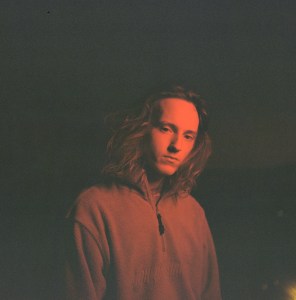Blisspop staff writer Lu is reporting from Cape Town, South Africa
Like clustered trees that stretch to touch the sun, the lyrics delivered to us throughout Mk. Gee’s latest song, “Come on (You know I’m a Fool),” reach for a sense of hopelessness and misery. What is, fortunately, holding this track back from being drenched in this man’s blues is the uplifting instrumentation that is bound to spread good vibes and have your head bumping in satisfaction for a good 15 minutes (yes you are going to want to put this on repeat.)
The warmth that’s facilitated by the tape hiss, vinyl crackles and other forms of vintage emulation immediately grabbed hold of my attention the minute this gem bashed against my ear drums. Speaking of drums, the off kilter rhythm, combined with the bit-crushed texture of the drums, introduces a wave-like movement to the song, prompting repetitive kisses between your feet and the cold floor as your foot taps into oblivion. A surprising appearance from an 80’s-type Moog bass line further captures the retro feel of the song; I say this surprisingly because it has such an awkward position in the mix as it abruptly enters and makes an exit in unsuspecting episodes.

“Come on (You know I’m a Fool)” is imbued with flowery ‘sad-boy soundscapes,’ and I say ‘flowery’ because his lyrics come across as dense, yet the effects ornamented around his vocals are somewhat hazy with a sugary pop texture. One would find it difficult to distinguish if this is a story of love or introspection, thus accentuating the designated soundscapes I mentioned earlier. “You know that I’m a fool/who loves to fall into/conclusions I’ve come too.†It could be both by virtue of Mk Gee seeming to learn more about himself through his relationship with his lover/crush, or even friend. Regardless of what the story is about, the brilliance that lies within the songwriting cannot escape mention. I can’t even tell what’s easier to catch – this chorus or the Black plague back in 14th century Europe.
One could play this track during the early stages of a party or home alone, distressed about your far away lover. It may be somewhat sad but not the kind to encourage a waterfall of tears but the kind to motivate you by virtue of the optimistic atmosphere.

